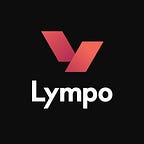Secure Mobile Health Data has been elusive and contested, but Lympo is solving it…
Lympo is redefining ownership, integration and free flow of data to allow every stakeholder to benefit.
mHealth, as mobile health is popularly known, will soon become the major slice of the digital health market. This is backed by statistics that show that just in 2016, the total number of mHealth apps rose by 57%, app store downloads totalled 3.2 billion and 52% of smartphone users gathered health-related information on their mobile phones. That makes it a large portion of the digital health market which was itself expected to be worth $233.3 billion by 2020.
And it doesn’t take much to recognise that this market will see a surge in number of users, apps and data in the coming years. But this massive expansion brings severe challenges with it.
Who owns our valuable health data?
It’s a harsh truth that our personal data is not our personal asset. Back in 2011, when the World Economic Forum declared personal data as a new asset class it was hailed as one of the most valued and expensive assets.
However, we have voluntarily or involuntarily become part of a ‘quantify’ movement in which smartphones with health data tracking or a mHealth app or a fitness wearable are being used constantly. While we are busy quantifying ourselves, the companies whose products we are using are busy collecting our data and generating profits from it. And that is the problem that Lympo aims to solve. We believe that users should own the data they generate.
Hence, in light of this challenge, Lympo presents a health and fitness app data aggregator that does not share users’ data, but enables them to monetize it instead. Users can share the data with other stakeholders only if they wish to and their consent is recorded on a blockchain.
Why is the market so segmented?
We see a growing trend towards aggregation of information in various sectors of business, finance and sports, but rarely is that visible in the mobile health data domain. Most apps focus on one specific area, and providers gather only very specific information. Some of the few aggregators that do allow integration have reluctant users that see no real advantage of storing the data in one place. The central problem is that integration is being demoted to occasional data sharing on social media, with more and more data falling in the hands of the provider without any really benefit for the user.
To top all of that, varied research shows that privacy is the number one concern for mHealth users. Hence, it becomes a very compelling reason for users to refrain from storing data in one location. However, when such data is shared with the rightful parties it would be very valuable, such as getting feedback from a sports or mindfulness coach, physical therapist and even a general practitioner. Very few existent apps offer such a service.
Lympo comes into the picture with a two-fold approach of having the digital wallet that rewards customers for sharing the data that they own, and having a marketplace where these rewards, which are offered in terms of LYM tokens, can be used to purchase products and services from the health and wellness market. In fact, the current platform of Lympo allows users to choose from 500+ fitness professionals, dieticians and therapists by using these tokens.
How can there be a free flow of data that benefits all?
The current race in the mobile health industry is to come up with a better mechanism to lock a user within one platform. This discourages integration and data sharing while the valuable information remains stored with a single provider. Data protection laws are equally as harmful to the flow of data but for good reasons as these laws don’t want users’ personal data moving across different businesses as well as across the border without their permission.
However, in an age and time where users produce valuable data with literally every step they make, it’s important that there be free flow and sharing of relevant information, while at the same time ensuring security of this data. Private ownership of sports and health data opens doors to user-controlled data sharing whereby the information flow can be managed by the individual and this can be a decisive answer to the data flow problem.
Through Lympo, this answer becomes reality. The single most important feature for users of our platform is that they will have the right to decide who gets to view their data. In return, they get rewarded with LYM tokens for giving access. Hence, Lympo meets demand for data with supply, but without resulting in undue influence or exploitation of the supply.
Over the years, the fastest-growing mHealth sector was the fitness and wellness domain with a projected compound annual growth (CAGR) of 48%. It’s not a simple matter when there are concerns about the safety and fair use of vital personal information that people hold dear. Through Lympo, we hope that all these challenges are resolved and that people can heave a sigh of relief, knowing that their data is in their own safe hands.
